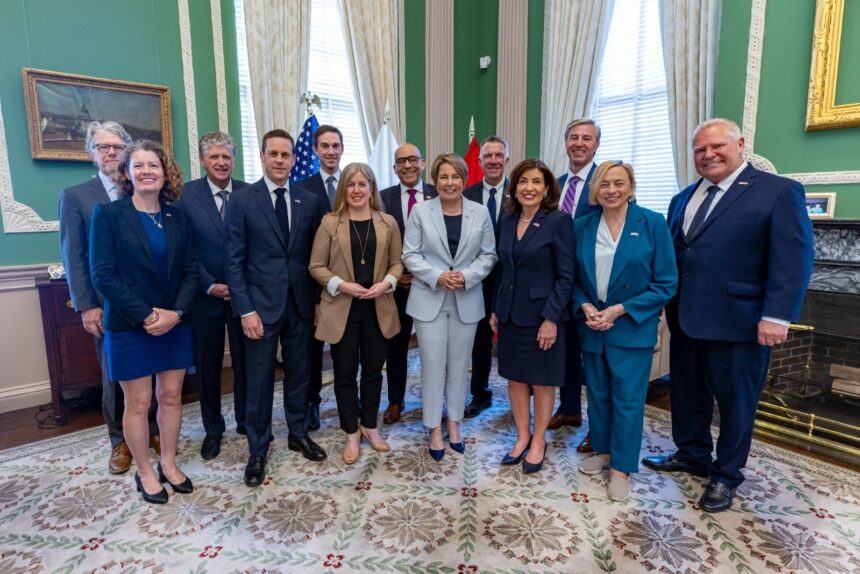In an unprecedented display of cross-border solidarity, Canadian premiers and U.S. governors issued a forceful joint statement yesterday opposing former President Donald Trump’s proposed tariff policies. The rare coalition of regional leaders warns that renewed trade barriers would devastate integrated supply chains and harm workers on both sides of the world’s longest undefended border.
The joint declaration comes as Trump, campaigning for a second term, has repeatedly promised a 10-25% blanket tariff on all imported goods if re-elected in November. “We cannot stand silently as decades of economic partnership are threatened by short-sighted protectionism,” said Ontario Premier Douglas Ford, who coordinated the Canadian response alongside Michigan Governor Gretchen Whitmer.
Economic analysis from the Peterson Institute for International Economics estimates Trump’s proposed tariffs would eliminate approximately 650,000 American jobs and reduce U.S. GDP by 1.3% within the first year of implementation. Canadian exports to the U.S. totaled $479.8 billion in 2023, representing 75% of all Canadian exports and supporting roughly 1.5 million jobs nationwide.
“The integrated nature of our economies means any new trade barrier hurts workers and businesses on both sides of the border,” notes Quebec Premier François Legault. “Auto parts may cross the border six or seven times before a vehicle is completed. These tariffs would dramatically increase costs at every crossing.”
The statement, signed by leaders from provinces and states representing over 70% of the Canada-U.S. economic corridor, emphasizes that previously imposed tariffs during Trump’s first administration required billions in bailout payments to affected American farmers and manufacturers while failing to revitalize U.S. manufacturing.
Washington Governor Jay Inslee pulled no punches in his assessment: “We’ve seen this movie before, and it was a disaster for American consumers and workers. My state alone saw nearly $2 billion in retaliatory tariffs hit our agricultural sector during the last round of this misguided policy.”
Canadian federal officials have maintained a diplomatic approach, with Prime Minister Trudeau stating yesterday that Canada “always stands ready to work with any U.S. administration.” However, this regional rebellion suggests provincial leaders are taking a more aggressive stance to protect their economic interests.
The bipartisan coalition has commissioned a comprehensive economic impact assessment expected within weeks. Leaders have also established a cross-border working group to develop contingency plans should tariffs be implemented after the November election.
Trade experts note this regional approach represents a strategic shift from 2018, when retaliatory measures were handled primarily at the federal level. “Provincial and state governments are on the front lines of these economic relationships,” explains Dr. Amelia Rodriguez, trade policy specialist at the University of Toronto. “Their coordination creates political pressure that might actually resonate with voters in key swing states.”
As both countries face uncertain economic headwinds, this rare display of cross-border unity raises an essential question: Will regional economic partnerships prove more resilient than national politics in preserving North America’s integrated economy?










